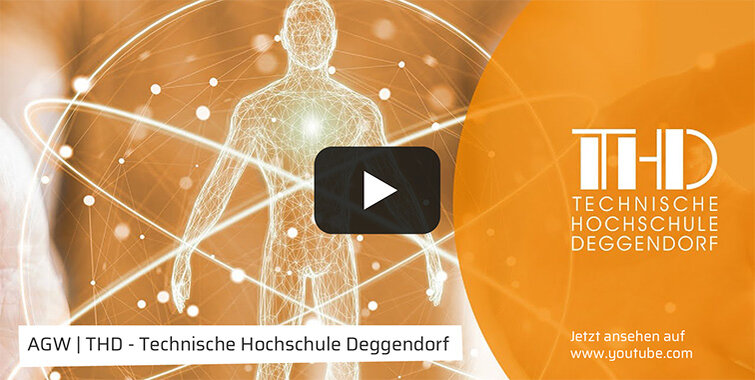ENABLE A SELF-DETERMINED FUTURE
WITH YOUR DEGREE PROGRAMME IN ERGOTHERAPY (B.SC.)
#count%
of all dit graduates
will find a job
within 2 months

Empowering people with ergotherapy - and your professional future too
#health-competence #everyday-helper #rehabilitation #therapy #medical-profession
#health-care #people-centred #care-research #evidence-based
Do you want to help people lead a self-determined life again? As an ergotherapist, you will support patients in regaining everyday skills and enriching their daily lives. To do this, you combine medical knowledge with practical and creative approaches to create individualised therapy plans.
Digitalisation processes, increased use of technology, demographic change and new research findings mean that requirements and tasks are changing fundamentally and constantly. During your studies, you will not only acquire valuable, in-depth skills for your professional career, but also the right tools to help shape the ergotherapy of tomorrow.
The DIT is the first state university in Bavaria to offer a part-time degree programme that prepares you in the best possible way. You will become an active part of the change in the healthcare sector and help to promote the participation and health of patients.
Fact sheet Ergotherapy
Degree: Bachelor of Science (B.Sc.)
Duration:
- 9 semesters (4.5 years)
- For certified ergotherapists: shortened course of 5 semesters (2.5 years)
ECTS points: 210
Option 1: In cooperation with a vocational school
- 1st-6th semester: Dual study programme = lessons from Monday to Friday lunchtime at the cooperating vocational college, as well as occasional lessons on Friday afternoons and Saturdays all day at DIT
- 7th-9th semester: full-time study programme = lessons from Monday to Saturday at the THD
Option 2: For qualified ergotherapists
- Shortened programme to 2.5 years (5 semesters)
- The modules of the non-essential training phase can be studied in parallel (semesters 1, 3, 5 and 2, 4, 6).
- It is possible to work part-time. Apart from the student union fee, the shortened B.Sc. is free of charge, as is the full degree programme (for exceptions, see the point ‘Fees’ below).
Start: October (winter semester)
Location: Deggendorf
Taught in: German (see language requirements)
Application period: 15 April - 15 September
Admission requirements:
- General German university entrance qualification, or please check your eligibilty at the DAAD if you own an international qualification
- As well as a training contract with one of the cooperating vocational schools
- Or a completed vocational training as a ergotherapist followed by at least three years of full-time professional practice
Fees:
- No tuition fees, only student union fee
- International students from non-EU/EEA countries are required to pay service fees for each semester. Click here to read about our service fees.
Contact:
- General enquiries about studying at DIT: welcome@th-deg.de | prospective student advisors
Career prospects
As an ergotherapist, you help people to lead as self-determined a life as possible despite physical, mental or cognitive limitations. You work with people of all ages in a client-centred and everyday-oriented way. The focus is on individual activities, resources and barriers in their respective living environment.
Ergotherapists design therapy processes based on scientific findings and work on an interdisciplinary basis with other professional groups in prevention, therapy and rehabilitation. You analyse the needs of your patients, involve relatives and make informed decisions. Typical workplaces are outpatient and inpatient healthcare facilities as well as social and educational services. The profession requires empathy, creativity and an interest in the holistic promotion of health and participation in everyday life.
With a Bachelor of Science in Ergotherapy, you will have a wide range of career opportunities and promotion prospects. In addition to the practical practice of the profession, you will be prepared to work in teaching, research or management positions and to further professionalise the ergotherapeutic discipline.
Course structure
Your Bachelor's degree programme in Ergotherapy lasts nine semesters. Of course, you won't just be sitting in a lecture theatre, but will be working with people in healthcare facilities straight away. If you have not yet completed vocational training as an ergotherapist, you can do so with a training contract with one of our cooperating vocational schools.
Thanks to the mix of theory and practice, you will learn in-depth scientific and theoretical principles - and not just in ergotherapy procedures and methods, but also in psychology, leadership skills or digitalisation in the healthcare sector, for example.
cooperating technical schools for Ergotherapy
- Berufsfachschule für Ergotherapie Augsburg des IB Süd e.V.
Alter Postweg 97b, 86159 Augsburg
- Berufsfachschule für Ergotherapie München des IB Süd e.V.
Lindwurmstraße 129/131, 80337 München
- Berufsfachschule für Ergotherapie Aschaffenburg des IB Süd e.V.
Erlenmeyerstraße 4 - 6, 63741 Aschaffenburg
- Berufsfachschule für Ergotherapie Vilshofen
Pacherstraße 5, 94474 Vilshofen a. d. Donau
If the school of your choice is not on this list, please contact us via e-mail at vivien.trispel@th-deg.de. We will be happy to check the possibilities of cooperation with the school of your choice.
Subject Overview
Overview of lectures and courses, SWS (Semesterwochenstunden = weekly hours/semester) and ECTS (European Credit Transfer and Accumulation System) in the Bachelor's degree Ergotherapy.
|
1. Semester |
SWS | ECTS |
|
Scientific work |
3 |
5 |
|
Reference scientific basics I* |
4 |
5 |
|
Basics of ergotherapy and terminology* |
4 |
5 |
|
Practice I* |
3 |
5 |
|
2. Semester |
SWS | ECTS |
|
Theories, models and fields of action in ergotherapy |
3 |
5 |
|
Reference scientific basics II* |
4 |
5 |
|
Ergotherapeutic methods and resources I* |
4 |
5 |
|
Practice II* |
3 |
5 |
|
3. Semester |
SWS | ECTS |
|
Prevention and health improvement |
4 |
5 |
|
Ergotherapeutic methods and resources II* |
3 |
5 |
|
Practice III* |
5 |
10 |
|
4. Semester |
SWS | ECTS |
|
General business management |
3 |
5 |
|
Social processes and communication* |
3 |
5 |
|
Practice IV* |
5 |
10 |
|
5. Semester |
SWS | ECTS |
|
Disability Studies |
3 |
5 |
|
Legal fundamentals |
3 |
5 |
|
Psychology & pedagogy in ergotherapy* |
4 |
5 |
|
Practice V* |
3 |
5 |
|
6. Semester |
SWS | ECTS |
|
Ethical principles |
3 |
5 |
|
Systemic communication |
4 |
6 |
|
Work organisation* |
4 |
5 |
|
Practice VI* |
3 |
4 |
|
7. Semester |
SWS | ECTS |
|
Occupational Science |
4 |
8 |
|
Quantitative and qualitative research methods |
4 |
6 |
|
Mental and cognitive processes - learning to understand people |
4 |
6 |
|
Professional identity and health policy |
3 |
5 |
|
Digitalisation in the healthcare sector |
4 |
5 |
|
8. Semester |
SWS | ECTS |
|
Corporate management |
4 |
6 |
|
Nutrition basics |
4 |
5 |
|
Health Care Management |
3 |
5 |
|
Evidence Based Practice |
4 |
9 |
|
English Competence and Research Training |
4 |
5 |
|
9. Semester |
SWS | ECTS |
|
Diversity Studies and intercultural competence |
3 |
5 |
|
Value-oriented leadership and leadership practices |
3 |
5 |
|
Professional Reasoning |
3 |
5 |
|
Health competence |
3 |
5 |
|
Bachelor thesis |
|
|
| Accompanying seminar | ||
| Bachelor thesis | 2 | 4 |
|
|
2 |
6 |
79 ECTS are recognised by the degree "staatlich geprüfter Ergotherapeut/in".
* These modules are recognised by the examination of vocational schools and do not have to be attended at the DIT. The application for recognition of the examination results must be submitted in the seventh semester to the study program assistant.




